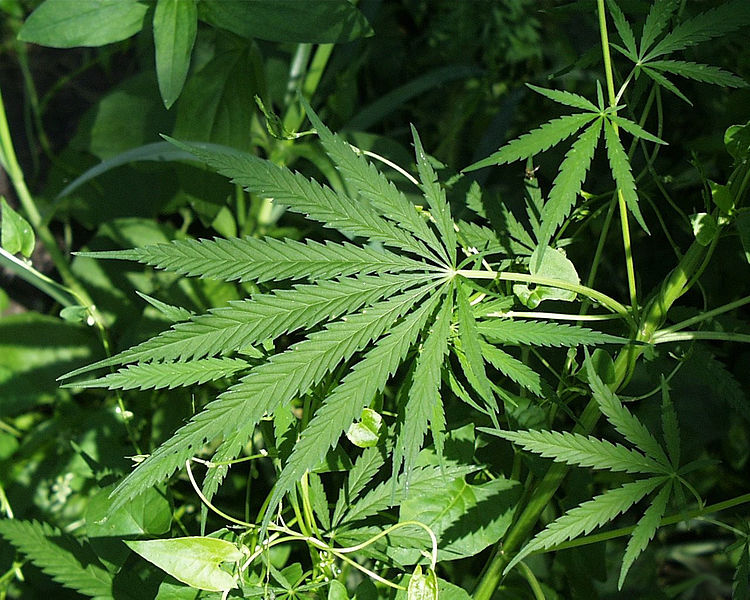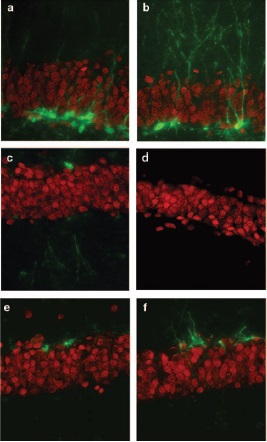By Gary Wenk
Marijuana is the leafy material from Cannabis indica plant that is generally smoked. By weight, it typically contains 2%-5% delta-9 tetrahydrocannabinol (THC), the primary psychoactive agent. However the plant also contains about fifty other cannabinoid-based compounds, including cannabidiol (CBD).
One Internet ad claims that “cannabidiol (CBD) can cure arthritis, multiple sclerosis, chronic pain, schizophrenia, and epilepsy.” CBD is the main non-psychotropic cannabinoid present in the Cannabis sativa plant, constituting up to 40% of its extract. Somehow this one particular component of the marijuana plant has become much more popular than all of the sixty (at least) other biologically active molecules that have been isolated from this plant, to the point where growers are breeding marijuana plants with significantly higher levels of CBD.

Why are people so excited about CBD? The answer lies in unpacking a series of complex truths, making distinctions between what is known and what is not known, and dispelling some false claims.
The human brain naturally possesses a pair of protein receptors that respond to endogenous marijuana-like chemicals. These receptors are incredibly common and are found throughout the human brain. When a person smokes marijuana, all of the various chemicals in the plant are inhaled, ultimately, into the brain where they find and bind to these receptors, similar to a key fitting into a lock. Which receptors are affected, and what parts of the brain are involved, differs for just about everyone, depending upon their genetic make-up, drug-taking history, and expectations regarding the experience; the last factor being commonly known as the placebo effect.

The images above come from Dr. Wenk’s research at Ohio State University, and demonstrate an increase in hippocampus neuron activity in rats following a cannabinoid treatment.
Both CBD and THC are capable of interacting with this complex variety of proteins. However, and this is where things get interesting, they do not do so with the same degree of effectiveness. Scientists have shown that THC is over one thousand times more potent than is CBD, meaning a person would need to consume 1,000 “joints” of the genetically modified CDB-marijuana plant to get high. This chemical property of CBD has led to the accurate claim that CBD does not make one feel “high.” However, the low potency of CBD may also indicate that, by itself, it offers limited clinical benefits – currently- no one knows. Animal studies have discovered many beneficial effects of CBD but only when administered at very high doses.
What has become quite apparent is that no single component of the plant is entirely good or bad, therapeutic or harmful, or deserving of our complete attention. To date, all of the positive evidence supporting the use of medical marijuana in humans has come from studies of the entire plant or experimental investigations of THC. Given the very low potency of CBD within the brain it is highly unlikely that CBD alone will provide significant clinical benefit. Some small clinical trials are being initiated; until rigorous scientific studies are completed no one can claim that CBD is better than THC.
Gary L. Wenk, PhD., a Professor of Psychology & Neuroscience & Molecular Virology, Immunology and Medical Genetics at the Ohio State University and Medical Center, is a leading authority on the consequences of chronic brain inflammation and animal models of Alzheimer’s disease. He is also the author of Your Brain on Food: How Chemicals Control Your Thoughts and Feelings.
Subscribe to the OUPblog via email or RSS.
Subscribe to only health and medicine articles on the OUPblog via email or RSS.
Image Credit: First image is from United States Fish and Wildlife Service. Public Domain via Wikimedia Commons.
The post Is CBD better than THC?: exploring compounds in marijuana appeared first on OUPblog.


